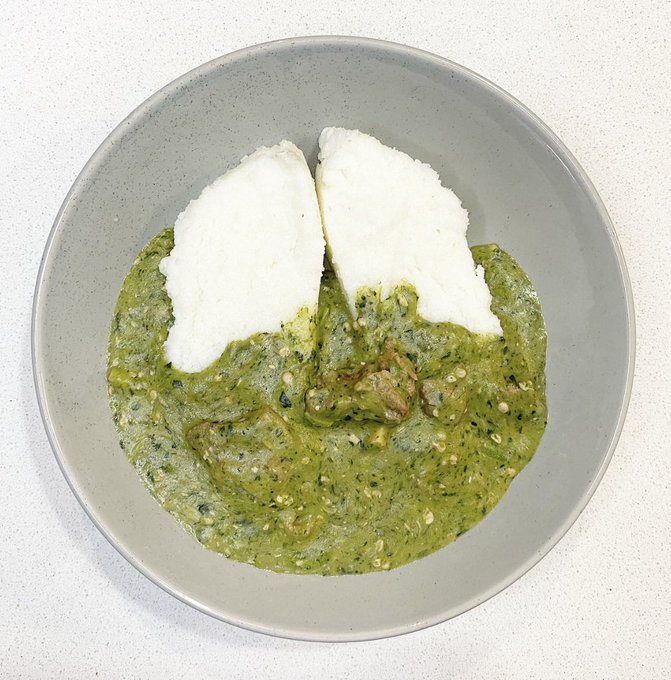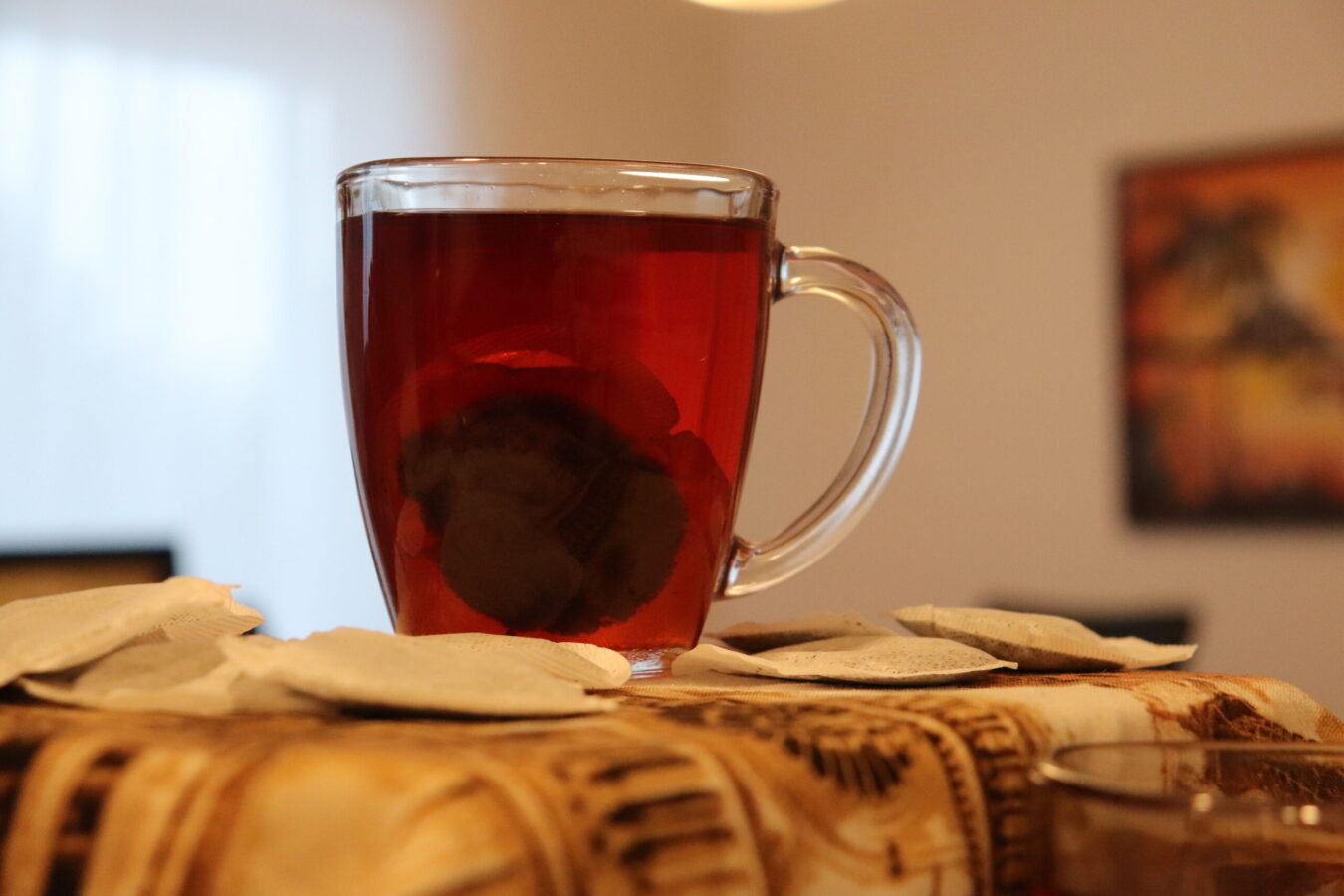
The sweet, spicy aroma of cinnamon, cloves and cardamom wafts through the kitchen as I speak over the phone with Nyaitan Pach, a South Sudanese community member in Ottawa. I am making an orange pekoe Tetley tea, chai sadah black and fragrant while she brews chai be leban, tea with milk, rich and comforting.
In South Sudan, tea is known as shai, pronounced shy, rather than chai as it’s commonly known in the West.
She reminisces about childhood mornings, her favourite memory being tea served with biscuits, often enriched with nido powdered milk. For her, it wasn’t just a drink, it was a ritual of warmth and a cherished start to the day.
“it would be served in the morning before school,” said Pach. “I would dip my biscuits in the tea and they’d melt in my mouth. It was the best part of my day.”
Common South Sudanese tea options include chai sadah (black tea), chai leban (milk tea), chai lemon (lemon tea), chai naa’naa (mint tea) and karkade (hibiscus tea).
“I’d dip my biscuits in the tea and they’d melt in my mouth. It was the best part of my day.”
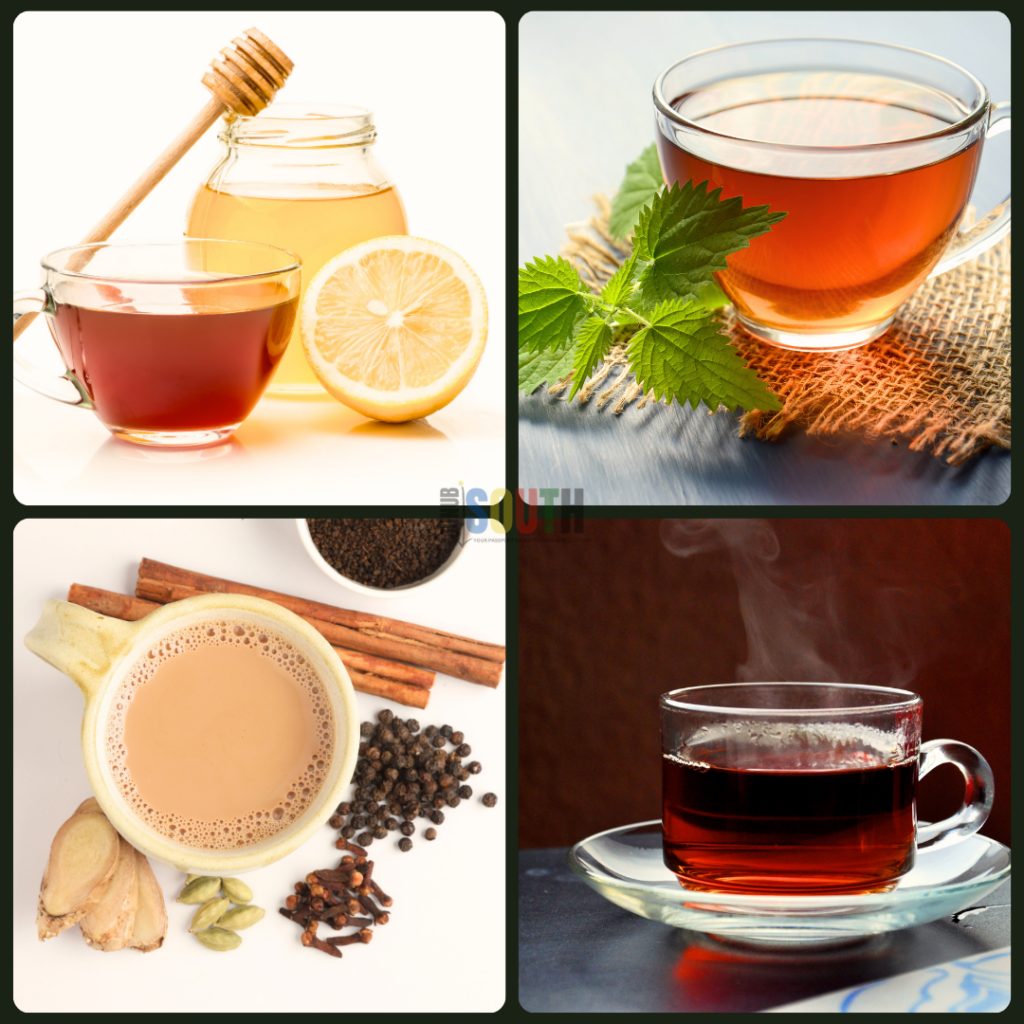
What’s in your milk tea?
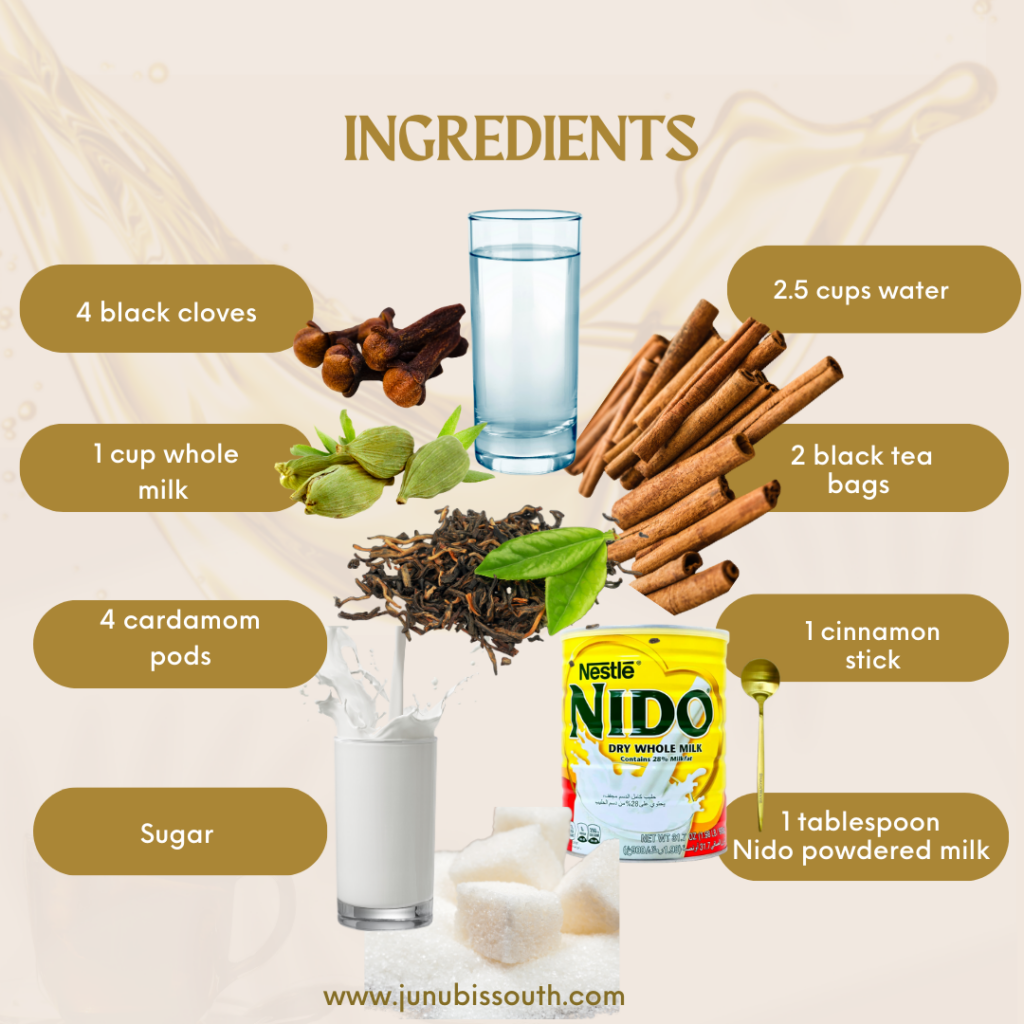
Like many South Sudanese families, Pach’s family fled Sudan to escape the civil war. They lived in Ethiopia before immigrating to Canada when she was eight. After settling in Calgary, Pach has called Ottawa home for the past seven years.
“In Ethiopia, I watched my mother host coffee parties with her friends and I’ve been in Canada since I was eight where Canadians are also coffee drinkers, so I grew to love coffee,” she said.
Though coffee culture shaped her earlier years, tea remains a strong link to her South Sudanese identity. It’s a tradition she cherishes and continues.
“Tea brings us together,” she said. “It’s how we start and end our days. It’s part of who we are.”
Tea brings us together. It’s a part of who we are.
Tea is cornerstone of hospitality, shared during moments of joy, sorrow and reflection.
“We serve it to welcome guests into our home as a gesture of kindness and love. It’s a way to make people feel comfortable and at ease,” said Pach. “When someone is having a headache, they are offered tea. When a group gathers to drink tea, you’ll hear laughter, stories and folklore.”
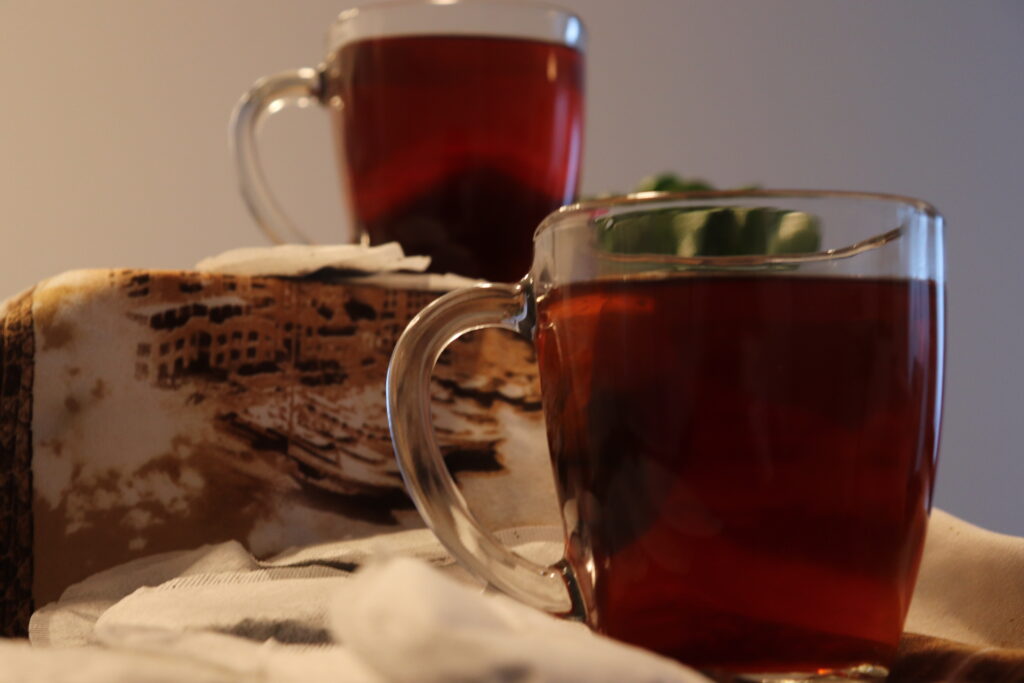
Six unwritten rules of South Sudanese tea every guest should know
- Chai means tea: whether plain or spiced, chai refers to tea. Avoid saying “chai tea” just ask for chai.
- Welcome offering: chai is always served alongside or after water upon a guest’s arrival.
- Preference first: always ask if guests prefer chai sadah or chai leban. Both options should be readily available.
- Serve in clear glassware: tea is traditionally served in clear glass to showcase its colour.
- Accompaniments: tea is often paired with tea biscuits, zalabia (pastry) or peanuts.
- Refills are expected: keep the teapot ready for seconds and thirds it’s customary to offer refills.
Bonus tips for hosting non-South Sudanese guests
The key difference between hosting South Sudanese and non-South Sudanese guests is the expectation to always ask first. Culturally, South Sudanese hosts offer beverages and meals without needing to ask, but in Canada, it’s important to inquire.
Always ask first: Ask if guests want sugar and how many spoons they prefer.
Offer refills: Once guests finish their first cup, be sure to ask if they would like a refill.
Sugar with tea, not tea with sugar
In South Sudanese households, tea is unapologetically sweet. There’s a common joke in the community that they drink sugar with tea, not tea with sugar. Four to six spoons in a small cup are not uncommon. While surprising to some, this is simply how tea is enjoyed.
South Sudanese tea is distinguished by its bold, aromatic spices. Essential spices include black cloves, cardamom and cinnamon, while optional additions such as mint, ginger and kuranjal (also known as Siamese ginger) can be included based on personal preference and recipe.
Even far from home, South Sudanese families continue their tea traditions. Pach offers tea to her guests, mindful of their preferences.
“If they grew up in Sudan, I serve tea with biscuits,” she said. For larger gatherings, she ensures a variety of drinks to accommodate everyone’s tastes.
Whether in Juba, Wau, Cairo or Ottawa, a cup of chai remains a constant thread, connecting South Sudanese people to their culture and each other.

